Esteban, born and raised in San José, Costa Rica, returned to his native country after living for six years in the United States and obtaining BSc. and MSc. degrees in Mechanical Engineering from the University of Maryland. He comes to the program from Ad Astra in Costa Rica, where he was a project engineer for its renewable energy and environmental sciences division. Connect with him on LinkedIn.
Why did you choose to attend The Sustainable Innovation MBA program?
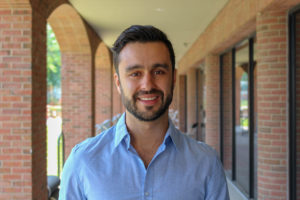 As a mechanical engineer working in the renewable energy and hydrogen fuel sector for six years, I started to notice that the development of these disruptive technologies will not reach full commercialization out of pure environmental enthusiasm. I understood that the creation of new business models based on sustainable practices that serve the vested interests of not just some, but all of the stakeholders, should be the objective to be pursued. It was then that I realized it was time to go back to school. I chose to attend an MBA program because I saw business as a tool to complement my engineering background. However, I specifically chose this program because it has an primary objective that I did not find in any other MBA program ― to make the world a better place.
As a mechanical engineer working in the renewable energy and hydrogen fuel sector for six years, I started to notice that the development of these disruptive technologies will not reach full commercialization out of pure environmental enthusiasm. I understood that the creation of new business models based on sustainable practices that serve the vested interests of not just some, but all of the stakeholders, should be the objective to be pursued. It was then that I realized it was time to go back to school. I chose to attend an MBA program because I saw business as a tool to complement my engineering background. However, I specifically chose this program because it has an primary objective that I did not find in any other MBA program ― to make the world a better place.
What has been your favorite element/part of the program so far?
Every classmate of the cohort has a similar story and reason to be in the program. We are all deeply passionate about sustainability issues and finding ways to solve them. This makes us create strong bonds as well as a respectful and caring environment to share our ideas and learn from each other.
What are three things someone considering the program should be aware of?
1. If you are not into sustainability and contributing to solve the global environmental and social issues, this might not be the program for you.
2. The program is only one year, which makes it really intensive. It is really hard for anyone to attend while having an unrelated side project or job.
3. The city of Burlington is a beautiful developed rural area, unlike anything I have seen before. It has a very strong sense of community, and their citizens are very much interested in being active participants and helping each other.
How has The Sustainable Innovation MBA benefitted you so far?
Before starting this program, I had only worked with engineers and I was used to their particular way of thinking, solving problems, debating. It has been quite useful to be exposed to such a diverse group of people, with such different backgrounds, ranging from international development to finance, art, and even fashion. This has taught me that there are many ways of solving the same problem, and its always better to bring different fresh ideas to the table.
Anything else you’d like people to know?
I am an international student, from Costa Rica, and I strongly recommend this experience to anybody who lives outside of the United States. Since I came, everybody has been very friendly and helpful to me. You will feel just like home.

 As a mechanical engineer working in the renewable energy and hydrogen fuel sector for six years, I started to notice that the development of these disruptive technologies will not reach full commercialization out of pure environmental enthusiasm. I understood that the creation of new business models based on sustainable practices that serve the vested interests of not just some, but all of the stakeholders, should be the objective to be pursued. It was then that I realized it was time to go back to school. I chose to attend an MBA program because I saw business as a tool to complement my engineering background. However, I specifically chose this program because it has an primary objective that I did not find in any other MBA program ― to make the world a better place.
As a mechanical engineer working in the renewable energy and hydrogen fuel sector for six years, I started to notice that the development of these disruptive technologies will not reach full commercialization out of pure environmental enthusiasm. I understood that the creation of new business models based on sustainable practices that serve the vested interests of not just some, but all of the stakeholders, should be the objective to be pursued. It was then that I realized it was time to go back to school. I chose to attend an MBA program because I saw business as a tool to complement my engineering background. However, I specifically chose this program because it has an primary objective that I did not find in any other MBA program ― to make the world a better place.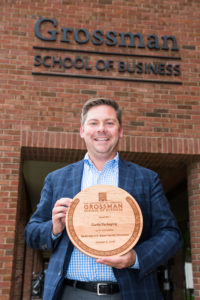
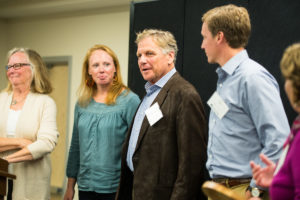
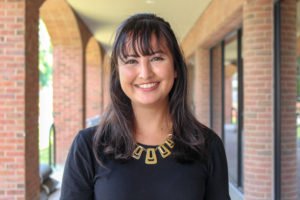 Why did you choose to attend The Sustainable Innovation MBA program?
Why did you choose to attend The Sustainable Innovation MBA program? An occasional curation of sustainable innovation and business transformation news, postings, et cetera…
An occasional curation of sustainable innovation and business transformation news, postings, et cetera…
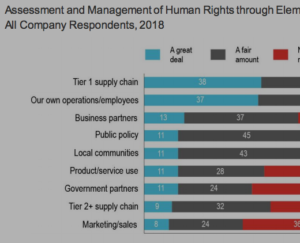 In addition to measuring shifting priorities and challenges in corporate sustainability, this year’s survey presented a unique opportunity to understand how business is responding to the changing social landscape.
In addition to measuring shifting priorities and challenges in corporate sustainability, this year’s survey presented a unique opportunity to understand how business is responding to the changing social landscape.

